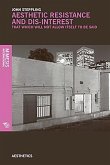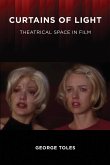The question of whether art produces politically transformative effects has been intensely debated within the critical discourses of art, literature, and performance practices. The aesthetic exception reopens the fundamental questions that underpin these debates and the entrenchments they produce within critical circles. Offering a wide-ranging perspective that encompasses the historical avant-garde, political activist street theatre in India, contemporary critical art practices, and post-dramatic performance, this book tracks three structural impasses that continue to benight debates on art's relation to the political: the problem of aesthetic autonomy which separates art from the social world; how art can communicate political effects while remaining 'art'; and the problem of how art relates to the terrain of real political struggle. It develops a new approach while emphatically embracing the idea that art can make meaningful interventions in the social world that enrich our political life without collapsing into well-known contradictions. Drawing on the classical debates of Adorno, Lukács, and Sartre; the more recent interventions of Habermas and Rancière; and the political theory of Gramsci, Althusser, and Hall, The aesthetic exception proposes a 'conjunctural' way of understanding the aesthetic possibilities that underpin political art practices. It invites readers to consider the stakes for political art in an age plagued by widening inequalities, and the saturation of the world by expropriative logics under globalisation. The book calls for rethinking political art at the level of the planetary conjuncture.
Hinweis: Dieser Artikel kann nur an eine deutsche Lieferadresse ausgeliefert werden.
Hinweis: Dieser Artikel kann nur an eine deutsche Lieferadresse ausgeliefert werden.








